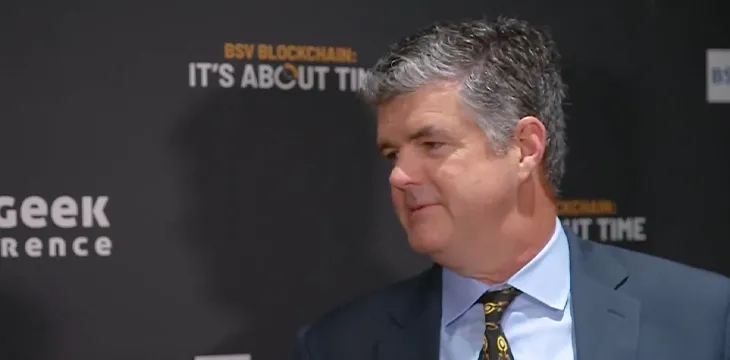|
Getting your Trinity Audio player ready...
|
Dictionaries have been a part of our lives. We use it as a lead source to find definitions of new words, and today, its online version is the most popular. We can find hundreds of explanations for a single word in one Google search. However, with such advancement, meaning gets lost often. That’s why SLictionary‘s co-founder and CEO John “Jack” Pitts has created an innovative dictionary on top of a public blockchain—SLictionary.
John Pitts joined CoinGeek Backstage host Nidhi Arora to talk about SLictionary, a knowledge exchange platform built on BSV blockchain, which allows users to get paid by adding words, definitions, images, and audio files pronouncing a word in the platform.
Arora started the interview by asking Pitts about their new release with NFTs called “Word Bounty.” According to Pitts, it is what they call the MVP or Minimum Viable Product in the software world. Word Bounty allows people to make money by competing in contests to define words where SLictionary users can vote, and the definitions with the highest votes get the BSV bounty.
“We got a long way to go, but it’s nice because the piece that we added today is a huge incentive piece for people to come to what we call ‘Word Bounty’ and make money and rather quickly,” explained Pitts. “You can make money by competing in these contests to define a word, and if you win the contest, you get the bounty… So, if you think you got good artistic and intellectual or poetry skills or maybe even a good voice to record pronunciations, then you can win the money.”
Pitts also mentioned what they are releasing is “really important” since they are trying to beat a dictionary company that’s been around for 200 years and some new, highly competitive companies.
The definition attributes are “on coin” and created as a STAS token, where the user owns the definition, he explained. Unlike other tokens that are “prunable” in which miners can take it off the blockchain without the owner’s consent.
“What we’re creating is a STAS token, and with the STAS token you have your definition—your information in your pocket. No one can take it away from you,” Pitts explained. “In SLictionary we don’t want a zillion definitions. We just want the best. So if your definition is on coin and if you’re taking up kind of space on the blockchain and it’s sitting on maybe 10 dollars [and] not making money. You just want the 10 dollars, so you have to redeem it. You’re doing me a favor if you redeem it because you’re taking a bad definition off of the dictionary,” he said.
For Pitts, SLictionary works similar to real estate. “I use real estate a lot because in Manhattan here, if you have a gorgeous building and then kind of a tenement next door. The tenement’s land is still very highly valued because it’s next to the nice building… It’s the same with our SLictionary. You want to get rid of the bad definitions. You don’t want what Google provides. Which is you look up a word, and there are 80 million things and wonder if you’re missing something,” he said. “The nice thing about SLictionary is you know you’re not missing it because there’s swarm optimization of the users coming in and deciding what’s valuable.”
How vital is micropayment to SLictionary? Pitts said they couldn’t do without it. “Simply, we take a penny and we cut it three ways. So the miner gets 100th of a penny, we get 3/10 of a penny, and the creative—the artist or the AI athlete—gets 7/10 of a penny. Now, this all works out because when you multiply that times millions and millions of transactions. If you’re only getting 7/10 of a penny but a million times, well, that’s like $70,000. So it’s important to track those little tiny pennies. We simply couldn’t do it on VISA and Mastercard [since they] charged like 10 to 30 cents just for starters. BSV only.”
Nidhi concludes the interview by asking Pitts his general take away from the CoinGeek New York Conference. In which he answered that people could make money and invite fans to check out SLictionary.
“Just come to SLictionary right now. There’ll be a button for Word Bounty. If you hit that right now, like I said, there’s a hundred-dollar bounty for the word ‘conference.’ So get on there and earn it. There’ll be a lot more coming, so keep coming back,” Pitts answered.
Watch: CoinGeek New York presentation, A Way with Words: NFTs with Cash Flow(s)?

 07-12-2025
07-12-2025 





